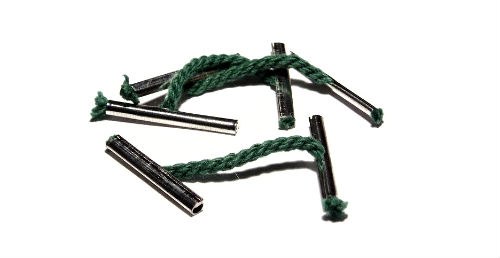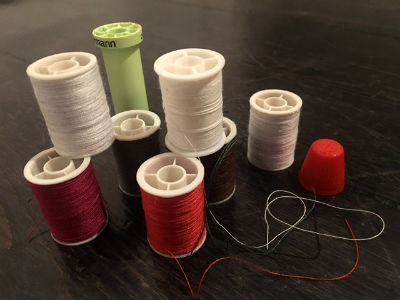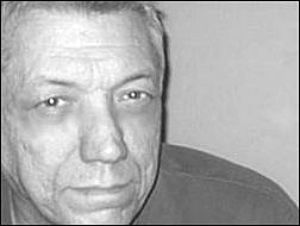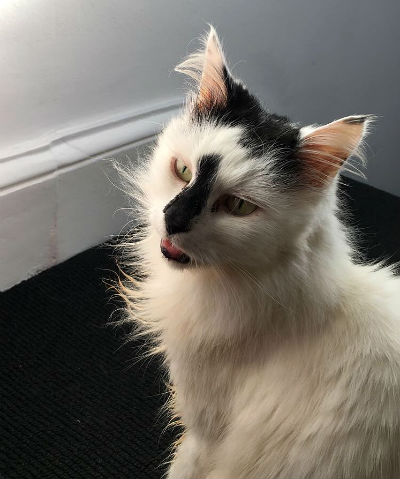Short Stories:
Featuring the accompanying post:
Quick links on this page:
'Spitting Out' is a short story by Jill Owen. Her story was published in issue #10 of Thrice Fiction, a popular US based flash fiction and short story magazine that has been in circulation since 2011. The magazine is published three times a year and welcomes unsolicited submissions.
Jill has kindly written about her experiences of being published in the magazine. She's also written about how her flash fiction story evolved and was edited into something publishable.
As always, if you have any comments or questions, leave them below and Jill and I will do our best to respond in a timely fashion.
She was sitting opposite him on the train. Black jeans, yellow top with some sort of bird on it – he couldn’t quite make it out without his glasses on, and he didn’t want to get them out. Probably kingfishers. Or hummingbirds.
The train rattled on through Turnpike Lane, Manor House. How should he speak to her? What could he say that would grab her attention, make her feel that there was some connection worth exploring?
In a moment of inspiration, he glanced down and pulled out the bag of cherries from his briefcase. He’d bought them from the market for the office receptionist, who he’d upset the day before. Not intentionally, but he’d started off with some jokey comment about her dress which turned out to sound worse than he’d meant it to be, and in trying to correct himself, he’d just dug himself into a deeper pit.
He saw the girl glancing at him. Fancy a cherry? he said suddenly, surprising himself, and felt a hot blush creeping up the back of his neck.
They look lovely, she was saying back to him, laughing, and he was trying to identify her vague accent, perhaps Northern Irish. He had a sudden, vivid flashback to a childhood holiday in Donegal, running wild with his cousins, barefoot on the windswept beach.

She was taking one from him now and opening her mouth. He glimpsed her perfect white teeth as she bit into the flesh. Then, suddenly, and rather shockingly, she spat out the stone. It flew with alarming speed across the carriage and ricocheted from the window just behind him with a loud ping.
She was laughing at him now, mouth wide open so that he could see her tongue stained blood-red with cherry juice. Would you like to go for a drink with me? Had he really said that? Or was it her that had said it to him? As the train juddered to a halt at the next station he sprang from his seat and leapt out of the door, scattering cherries that rolled and bounced after him. He saw her watching him expressionlessly through the glass as the train pulled away. And the hummingbirds on her yellow top seemed to be flying.
THE END

Jill Owen
JILL OWEN is an accountant and company director from Leamington Spa.
She started writing relatively late in life, having found herself in a profession that required no writing at all.
Her work has appeared in Thrice Fiction magazine issue 10.
She has a cat.
You can find out more on Jill's website.
I have wanted to write for as long as I can remember.
As a child, I would make books out of lined paper tied with treasury tags, enthusiastically illustrated on every other page. They were about horses and dogs and groups of friends having adventures together – not particularly good and heavily dusted with the influence of whatever I was reading at the time.
At my house, I have a story written in alternate sentences by my sister and myself. When I was 10 and she was 13, we carefully typed it out on our uncle’s ancient typewriter.

But later on, in my adult years, I stopped writing. Or at least, I always carried on in my head. But with a career and a young family, I didn't ever seem to have a block of spare time to devote to it. Although others might manage, I feel that writing can't be squeezed into the odd half hour between picking the children up from judo lessons or dance class and cooking the dinner.
Then, quite suddenly, after a relocation to the Midlands from London, a rationalisation of my working hours and my children inexplicably growing independent – able to drive themselves to places and cook their own meals in their own houses – I found myself with time to put pen to paper (metaphorically speaking). And so I did.
I remember, late one night, sharing first lines with my sister, who was confined to bed after surgery and keen to fill her time with some creative project. My sentence had nine words. Hers was a melange of complex connectives, hyperbole and metaphor.
I laughed so much that night. But of course the point is, in a short story the first sentence is pivotal. Much more so than in a longer piece of work, where a reader may be more forgiving of a slower start.

Let’s consider the opening line of Harry Potter and the Philosopher’s Stone, for example! The first readers of this hugely successful series of books must have decided to plough on through for a couple of chapters at least, to give the story a chance to warm up. But in a short story, you simply don’t have this luxury. It’s irrelevant whether that initial sentence is of a complicated grammatical nature or of a short and simple construction – it must give a strong clue of what to expect throughout the piece and hook the reader's attention.
My sister’s story remains very much a work in progress. In fact, I think that first line was pretty much all there was. Perhaps so much creative energy was invested in it, she had none left for the second.
I worked relentlessly on that first story, writing late into the night. And I was so proud of the finished thing! Was it any good? Not really. It was a little self-indulgent, full of autobiographical moments and rather rambled – I was easily distracted from the main thread.
When I had the story critiqued, I was advised that everything written should be relevant to the conclusion. At over 5,000 words, it was far too long.

Of course, the solution was to rework it and edit out unnecessary tangents from the plot. But I couldn’t bear to tamper with it. Now, three years on, I feel less precious about the text. I understand what needs to be done to make it better. And I probably will do that sometime soon. In the meantime, my first literary baby remains firmly on the back burner.
Next, I decided to attempt a piece of flash fiction. This genre of writing – generally less than 500 words and sometimes considerably shorter – would surely force me to refine my writing. No decadent inclusion of random thoughts or vague characters with no particular part to play. In fact, each word would have to earn its place. If it couldn’t, then it was out.
Flash fiction isn’t easy to write. It goes against the whole principle of story-writing that we believe to be true: that there should be a beginning, a middle and an end.

Flash fiction is what it says it is – a flash of something you see from a window of a train, perhaps. You don’t know what happened before to get to that moment, and you don’t know what happens after that vision ends. The reader is left to fill in the rest of the jigsaw round your single piece.
I wrote a flash fiction story called 'Cherries' and submitted it to a few publications. Then, browsing the internet one night, I came across the US publication Thrice Fiction magazine, with a deadline for submissions only a few days away.
I had changed the title of my story from 'Cherries' to 'Spitting Out' after a critique had commented that the title was ‘Apt for the story, but not intriguing.’ The rest was the original work.
Bob Spryszak, the editor, emailed me back. He said he'd nearly put it down after reading the second paragraph. The description of one of the characters was awful. But the rest was not that bad.

Bob Spryszak
But wait a minute! I reasoned with him (but only in my head). That was how the other character saw her! Not me! But instead of saying that, I emailed him back to say that if I cut out the paragraph, would he reconsider. Bob said yes. I made the edit. I was in.
What was the deleted paragraph?
Nice figure in a sporty way. Not young but young-ish. Younger than him, anyway. Probably about 30. Not that much younger than him, he announced silently to the disapproving audience inside his head.
Was it better without it? Probably. Although, even when I read the story again today, I can feel the gap there, like a missing tooth.
I have to report that the day I knew 'Spitting Out' was going to be published, I have honestly never felt so thrilled. I told absolutely everybody, people I knew and many people I’d only known for five minutes. If anyone showed the slightest hint of interest, I’d give them a copy to read. Even if they didn’t show any interest, I’d generally give them a copy anyway.
Everyone was very polite – if they didn’t like it, nobody mentioned it. They just said nothing at all. This brings me to another point. Your writing might not be everybody’s thing – just because people like you, they don’t necessarily like what you write.
But back a bit in time, to the looming publishing day...
Before publication, I had to produce a biography. That couldn’t be too difficult. Could it?
I had a look on the Thricefiction website, to see how other contributors had defined themselves. Many were already published authors of short stories and novels. Some were winners of distinguished writing prizes. One was an English professor at Yale. Another ran creative writing courses.
What on earth was I going to say? "You could say you had a cat," suggested my youngest daughter. But would that actually be interesting to anybody? I wondered. And then there was the problem of the photo. Why, in every picture of me, did I have a wine glass in my hand, rosy cheeked at some family celebration? What image did I really want to project?

In the end, I went for the boring truth. At least, I thought, the next time I have to write a biography, I’ll be able to say I’ve had something published. I left out the bit about the cat. And I got someone to take some pictures of me on a freezing cold winter’s day at Warwick Castle, looking rather gloomy. Perhaps I should have stuck with the party girl thing.
In the end, the questions you should ask yourself if you are attempting to get a story published are these:
If the answers to these questions are positive, then I think you are much better placed to get your work accepted. And, at the end of the day, it really doesn’t matter about the photo. I’m pretty confident that it’s never going to be the deciding factor...
I'd like to say a big, "Thank you," to Jill, for talking about her experiences so openly - this kind of sharing really does help inspire other writers, helping them become published authors.
I agree with all of the main points Jill has raised. Take the story title as an example. It's one of the scoring criteria I use when judging the To Hull And Back short story competition. Is the title compelling? Does it peak my interest, making me excited about reading the story? If a writer can't be bothered to come up with an intriguing story title, why would a reader bother reading it?
If you've had a flash fiction or short story published and would like to write about your experiences for my blog, please check out my submission guidelines and then get in touch.
Sarah R
Well done, Jill, for picking your writing career back up after spending time looking after your family and doing other jobs. I found the story interesting and would love to know what happens after!
Also love all the pictures that you have used.
Well done again.
Bridget R
I love this story, Jill, and find the story behind it very illuminating. Thank you for sharing it.
Jerry V
Do keep writing. You have talent! Enjoyed your flash much, Jerry V...
Jill O
Thank you for your support, Sarah! Glad you found it interesting.
Thanks so much Bridget! I appreciate your feedback.
Good to get such a positive comment. Thanks Jerry!
Helen
C
Love 'Spitting Out', Jill, and the back story too. Looking for more now that you have a bit more time.
Jill O
I'm certainly hoping to get some more out there soon - I'm in the middle of something at the moment! Thanks for your kind message, Helen.
Ellen E
Thanks for sharing the story and also for the honest insight into the crafting of the piece. Your advice is very wise and I will take it to heart! I look forward to reading more of your work.
Jill O
I'm glad you found my post useful, Ellen! It was actually quite beneficial to write about the whole experience - sort of put everything into perspective.
Sean
D
Hi Jill, I'll cut right to the chase, your biog is the first one that actually interested me and made me want to continue reading. Great insight.
Jill O
Well, thank you Sean for your encouraging words. I definitely have major crises of self confidence about my writing, so it helps in a big way to know that there are people out there who've enjoyed reading something of mine!
Jonathan C
Having joined a writing group a couple of months ago, and being asked to write a flash fiction of no more than 250 words, I was left feeling clueless and hopeless. How on earth could someone write such a short story?
I made my excuses and did not attempt it.
You have just shown me how, and I am very grateful to you. I really enjoyed 'Spitting Out'.
Jill O
Hi Jonathan, I’m so pleased you found my blog useful! And thank you for your kind comment on Spitting Out.
Actually I don’t feel that flash fiction is my best genre. I have written some much better longer pieces. But it’s certainly a great way to focus your writing and learn how to get benefit from every word. A great start for Writing Club, I imagine!
Leave your comments
Please use the form below to leave your comments. All comments will be reviewed so won't appear on the page instantly. I will not share your details with anyone else. Most recent comments appear at the bottom of the page, oldest at the top.